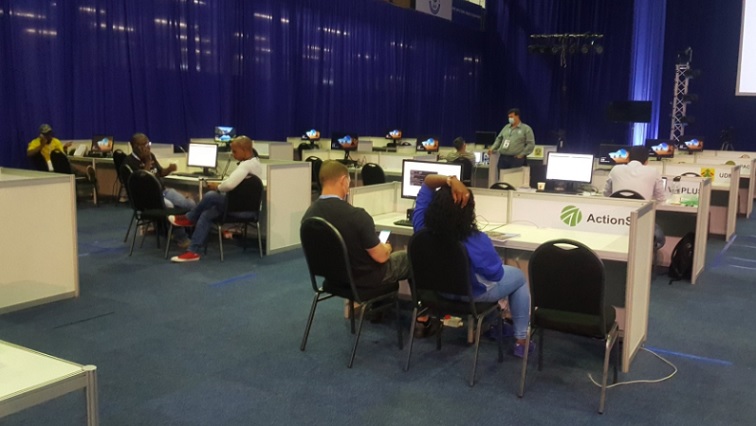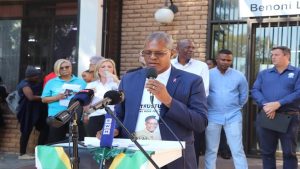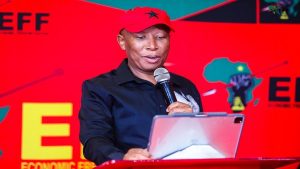Political analyst and author Professor Susan Booysen says political parties in South Africa play a game of ‘bluff’ accompanied by ambitious demands.
Booysen shares her perspective on some of the country’s parties as South Africans prepare to cast their votes on Monday, 1 November.
For the African National Congress (ANC) in particular, owning up to looking out for coalitions would be tantamount to telling voters it deems itself unable to secure victories in own right. The bravado of ‘we are going for outright municipal victories’ is therefore standard rhetoric in these days of results anticipation, especially coming from the ANC. The latest in these salvos has been the assurance of the ANC treasurer-general Paul Mashatile of confidence that the ANC will secure outright victories, even in the previously coalition-held metropolitan municipalities such as
Johannesburg and Tshwane.
The Democratic Alliance (DA) proclaims confidence of holding on to a coalition-free City of Cape Town, therefore not reverting to a 2006-type seven-party, complex coalition. In other major metropolitan centres it appears to have learnt a lesson of not entering into unsustainable cooperative agreements that are not based on ‘shared values’, in the words of federal chairperson Helen Zille.
The Economic Freedom Fighters (EFF) is calculated nowadays in its coalition repertoire. This compares with the 2016 days when it had partnered with the DA in, for example, in Johannesburg and Tshwane. That was the time of anti-Zuma activism, an important part of the glue that fleetingly bound the DA and EFF. In the early days of the 2021 campaign, the EFF proclaimed that it shall be governing in many places come the results of 1 November.
The words in all likelihood referred to being in a kingmaking position that will enable it to demand important municipal portfolios and positions. This will be an important message to parties hoping to rely on the EFF to top up majorities.
Should the EFF and Herman Mashaba’s ActionSA combine forces, as they did in Mashaba’s DA city regime, they could be a kingmaker of note between the ANC and DA. Mashaba, however, is on record that he will ‘never’ be in coalition with the ANC, and the EFF ‘never’ with the DA (except, quietly, for example in Modimolle Mookgophong). ‘Never’, of course, is usually a short time in politics – and the election results and patronage (perhaps even policy) offers in the aftermath could alter many previously firm positions.
The United Democratic Movement (UDM) has been a musical chair practitioner in the politics of Nelson Mandela Bay. The party has noted recently that it is working well with the DA in the council. The UDM’s Loxolo Namette also revealed part of what drives small and micro-parties to be kingmakers, saying: ‘Once we enter a coalition, we’re all equal, regardless of the proportional representative number in the council’.
Many of the very small parties in the 2021 race have been flaunting their coalition credentials in this manner: mostly amounting to being prepared to work with any of the major parties that will offer them privileges, positions and patronage.
The African Transformation Movement (ATM) 2019 newcomer with Jacob Zuma credentials now pronounces that if it does not win, it will work with any party that shares its values of working for a corruption-free government.
For the rest of the parties’ strategies, the DA-led 2016 initiative to align with a set of smaller parties, including the UDM, Congress of the People, and Freedom Front Plus, across municipal sites will probably not be reinvented. Both the UDM and Cope have demonstrated another truism about coalitions and party politics in South Africa: the agreements will be discarded when better offers and opportunities present themselves. This rule has also been demonstrated in the multiple coalition municipalities where small, community parties have been holding the balance of power between the ANC and DA, for example in the Central Karoo region.
In the wake of the election results later in the week, heady days of negotiations will be manifested across those municipalities in which the voters will not be giving one single party an outright majority. The current rules may be a guide, but practical politics and party political interest will rule.
Professor Susan Booysen is a political analyst and author.






